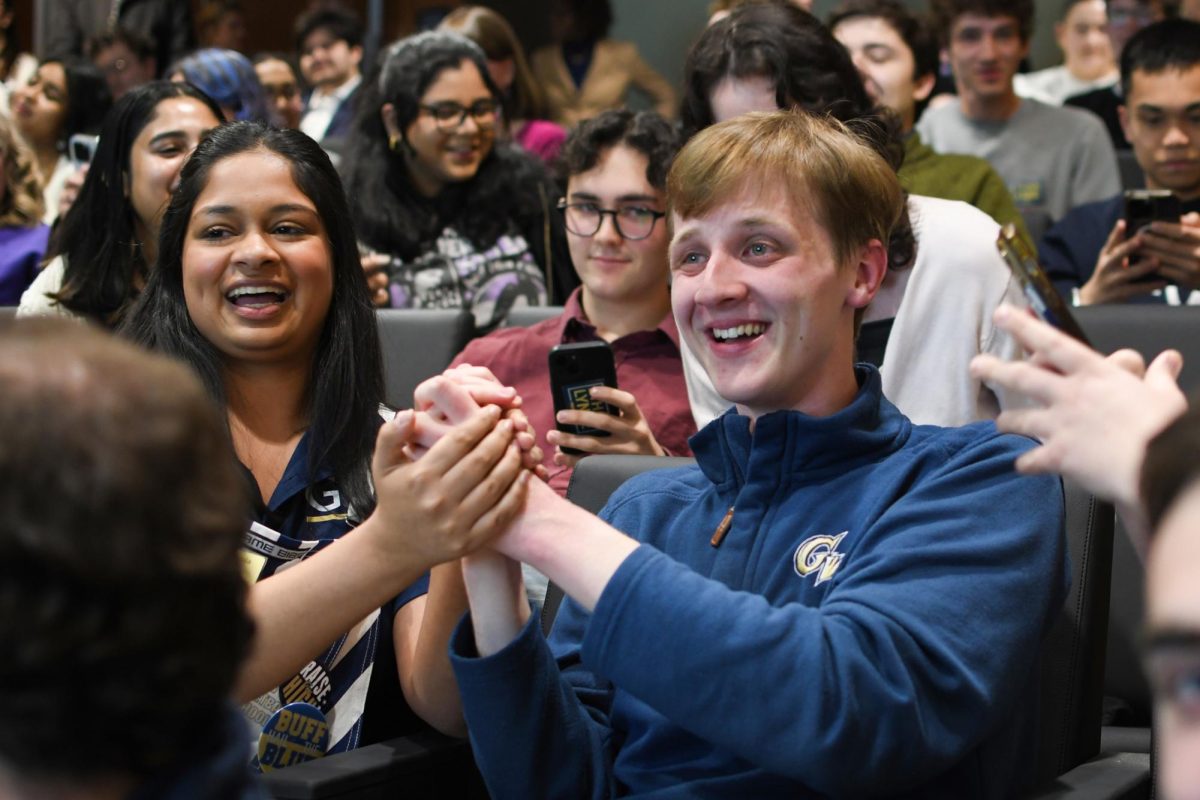Students and faculty in the Elliott School of International Affairs say one of the signature proposals in the University’s strategic plan may hurt its admissions prospects and push away applicants.
The idea to admit undergraduates to the University as a whole instead of to specific colleges is aimed at creating a stronger University-wide experience, but some say it would diminish students’ focuses on specific areas of study by delaying entry to programs by one or two years.
The highly ranked Elliott School is one of the few schools devoted to foreign affairs in the country, with many students looking to hone in on a specific field their freshman year. Its undergraduate program ranked No. 9 in Foreign Policy magazine’s most recent list of top international affairs programs – ahead of other GW programs like business and engineering, which were ranked No. 37 and No. 85 respectively by U.S. News & World Report this year.

The proposal, like all ideas pitched in the draft of the 10-year strategic plan earlier this month, will be scrutinized by faculty, alumni and students before it is finalized in February. If approved, the restructuring of GW’s admissions process would likely not happen for another two or three years.
Driving away students who have a narrow interest in international affairs could be an “inadvertent effect” of the proposal if it’s not implemented carefully, professor of economics and international affairs Michael O. Moore said.
Yvonne Captain-Hidalgo, director of the Elliott School’s master of international policy and practice program, said the change could push away incoming undergraduates who “come here looking for something specific.”
“I think a potential upside would be for an individual student if they have no sense of direction, but I don’t see that being the case for the majority of students,” she said.
While the Elliott School was about 1 percent less selective than the Columbian College of Arts and Sciences and the GW School of Business last year, its incoming freshman class had slightly higher average SAT scores – 1310 compared to 1290 and 1280, respectively and the program is ranked higher nationally in its field.
Michael Brown, dean of the Elliott School, did not return request for comment about whether the school was on board with proposal. Through a spokeswoman, he said in an email statement that the strategic plan is “innovative and bold.”
University spokeswoman Taylor Tibbetts said no Elliott School administrator was available for further comment.
Senior Christopher Longman, chairman of GW’s International Affairs Society, said an informal survey sent out to its members showed nearly all of 20 respondents thought the change would have an adverse impact on the Elliott School.
“The system’s not broke – I don’t know why we’re changing it,” Longman said.
Senior Kelsey Gann, president of GW’s chapter of the foreign service sorority Delta Phi Epsilon, said that entering the Elliott School at the outset of her GW career carried tangible benefits.
“I applied to GW because I knew I wanted to study international affairs, and GW gave me a chance to start directly on that path as a freshman,” she said. “One of Elliott’s strengths is the focus and dedication of students from the moment they arrive. I am afraid under the new plan that might change.”
Provost Steven Lerman, who has led the formation of the strategic plan, said earlier this month that he knew this proposal would have its critics.
He said he’s heard concerns ranging from curriculum concerns for engineers to deterring students specific interests away from the individual schools.
“Those people who express those concerns want to be assured that we’re thinking through all the pathways that all our students want to take to make sure they get the preparation they need, so they have those options, so they don’t have to take extra time in school,” he said.
The proposal also would help create an opening for more GW-wide courses like University Writing that would teach a common core curriculum for all undergraduates, like the G-PAC requirements do for Columbian College of Arts and Sciences students.
“The delicate balance is making sure that all those options are available, but students feel they already have the flexibility of being in a single university that’s together instead of being in separate sub universities or schools,” Lerman added.
The University will likely go to great lengths to implement the plan if it’s approved. Administrators are searching for a new vice provost of budget and finance who would help reshape create financial incentives for schools to work together.
Shawn McHale, associate professor of history and international affairs, said he liked the proposal, but pointed to logistical hurdles the admissions change could present. He added that schools would need to get over arguing over budget matters for this plan to work.
“I’d imagine you’re going to have uncertainty initially, because as it’s implemented, you’ll have students floating across schools, and some classes that will be way oversubscribed and some not,” McHale said. “I’m not saying I’m opposed to this model, but the transition to this future model is going to have teething problems.”
Henry Nau, a political science and international affairs professor, said the plan would have to be executed with “finesse” and “without penalizing schools,” especially the Elliott School, which he said fueled the rise of the University’s undergraduate enrollment, diversity and test scores over the past decade.
“One out of five students at GW is an Elliott School major. The Elliott School has been one of the big engines pulling this train,” he said.
Cory Weinberg contributed to this report.






